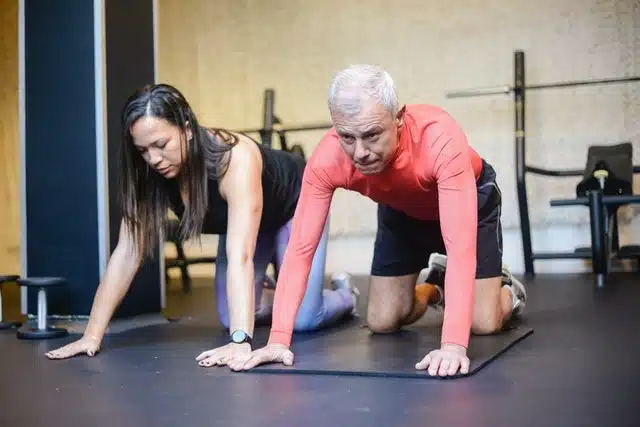Take Steps To Age In The Best Health Possible

As we age, our health becomes more influential in life.
We’re at greater risk of illnesses, injuries and chronic disease, which can reduce quality of life dramatically.
With this in mind, looking after your health and well-being as you mature is crucial, particularly if you haven’t done so as a younger adult.
Here are some of the main ways to do just that.
The Importance Of Diet And Nutrition
Eating the right food and drinking plenty of water helps to give your body the nutrients it needs to stay healthy.
As we age, we’re more vulnerable to the consequences of over-eating, so it’s important to eat a balanced diet where possible.
Eating a healthy and balanced diet involves getting the right amount of the different food groups into your diet.
This involves eating enough protein, fibre, and the correct amount of carbohydrates.
Ensuring you eat nutrient rich food can help to boost your vitamin and mineral intake.
Speaking to a health professional can also help you to identify different supplements you can take to boost your nutrient intake, such as vitamin and mineral supplements.
Ensuring you get the correct nutrients from your diet also helps to boost your immune system and will mean you are less vulnerable to disease and infections, further helping to keep your body healthy.
You don’t have to cut out all your sweet treats or glasses of wine, but eating and drinking everything in moderation is a good way to go about things.
Staying active
Exercise is vital for people of all ages and you’ve only got something to gain by staying active as you get older. Regular physical activity can maintain your muscle strength, bone density and cardiovascular health.
Some of the best exercises include balance exercises, such as yoga and Pilates.
This will help to strengthen and maintain the muscles used for balancing such as the core and stabilising muscles.
Similarly, doing some resistance training with weight is shown to help maintain muscle mass and retain the density of bones, which are key factors to reducing and preventing injury in older age.
It’s also a significant factor in managing your mental health and combating the symptoms of stress, anxiety and depression.
Ideally, you should aim to be active in some way every day, with more intense activities throughout the week.
Staying active can be done through social activities like sports groups, or simply by spending an active day with family.
Be a little more cautious
We become more fragile as we get older, there’s no point in denying it.
Being a little more cautious in day-to-day activities is a good idea to reduce your risk of injury or illness.
This could be taking your time while driving or not over-exerting yourself during exercise.
The consequences of accidents are often all the more dire as you get older. And it is much easier to be involved in an accidental fall.
For example, severe brain injuries can take away your sense of independence and make you more reliant on family members and you may need to speak to brain injury solicitors to source compensation for your injuries, helping to fund any rehabilitation.
Hopefully, with some added caution and small tweaks to your lifestyle, you can avoid life-changing injuries and maintain your sense of independence for years to come.
Maintain Healthy Social Connections
A key aspect of positive mental health is our sense of community and social connection.
Many of us are guilty of letting relationships with friends, family and loved ones slip as we get older. However, these connections are vital to our happiness and satisfaction in life.
Those over 75 are particularly vulnerable to loneliness and isolation.
Whether you’re already there or heading towards that age, treat your social connections like they won’t be there forever or try to be proactive in forming new relationships.
Get enough sleep
You need plenty of sleep, especially as you get older. It can be all too easy to fall into bad habits and sleeping patterns, but long-term sleep deprivation can have significant impacts on your health and wellbeing.
Research suggests that lack of sleep in middle age can increase the risk of dementia by up to 30%, as well as contribute to other detrimental health conditions.
Try to get 7 to 9 hours of naturally-induced sleep every night if possible.





